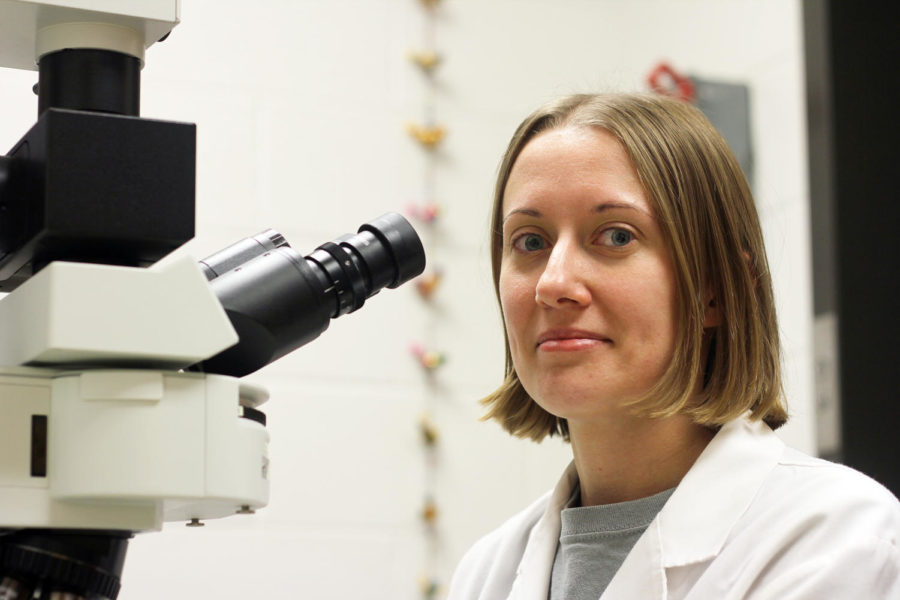University researchers create antibody test for swine virus
ISU alumna Erin Kalkwarf studies photomicrographs of PEDv Positive stained cells under a flourescent microscope as part of her job at Iowa State Vet Med. Kalkwarf is a research associate 2.
September 26, 2013
Researchers at Iowa State have developed the first test to detect antibodies of the porcine epidemic diarrhea virus.
Referred to as PEDV, the virus is found in pigs of all ages and causes a severe form of diarrhea, resulting in dehydration and the death of pigs on farms across the United States.
“In the young pigs, this infection is very devastating,” said Kyoung-Jin Yoon, professor of veterinary diagnostic and production animal medicine. “A lot of those animals die because of dehydration and eventually they cannot get the nutrients in.
“We had cases that we couldn’t solve. A lot of pigs were dying and we couldn’t come up with an answer.”
Researchers initially identified the virus as transmissible gastroenteritis, a virus similar to PEDV, but all tests came back negative.
That is when Yoon and his team of researchers came upon the PEDV virus.
“Everything looked like TGE, but it wasn’t,” said John Johnson, clinician in veterinary diagnostics and production animal medicine. “That’s when Dr. Yoon and his group developed a PCR, [polymerase chain reaction,] that could detect PEDV in virtually no time.”
Yoon said his team also has prepared for viruses it has not encountered yet.
“As far as I know, there are no other animals that are infected with this virus and no human infection cases,” Yoon said in regards to the PEDV.
The test keeps infected animals from being transported to farms and potentially spreading the disease.
“We know that it is extremely devastating on the sow farm, where the young pigs would be born,” said Johnson. “It will basically wipe out all of the pigs. It is vitally important that we are able to tell them the status of those animals before they move. … They need to know if they are carrying the virus presently and shedding it or even if they’ve ever been exposed.”
The test gives researchers and farmers the ability to know if the animal has ever been exposed to this virus.
The chain reaction test is one Yoon developed to see if the virus is carried in fecal material. It will be used in combination with the antibody test to see if the animal has ever been exposed.
Yoon said the research group receives support from the Iowa Pork Producers.
So far, the research lab at Iowa State is the only lab that offers this test.
“Discovery is important,” said Johnson. “We have just touched the tip of the iceberg on foreign disease.”







